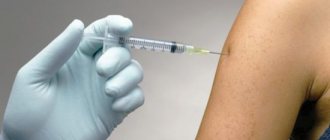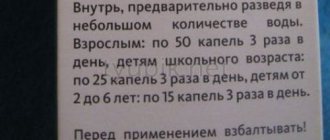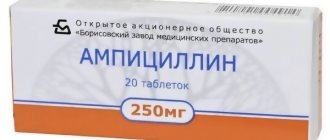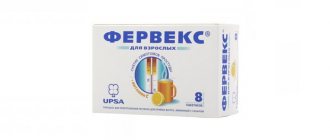For many centuries, people dreamed of protecting children from dangerous diseases, but this was only possible after the invention of vaccinations. Although they still do not protect against all infections in the world, many diseases that were dangerous in the past have receded and no longer threaten the lives of children. What vaccinations children should receive and at what time is determined in Russia at the legislative level. This approved vaccination schedule is called the vaccination calendar and is valid throughout Russia.
The first vaccinations are given to a newborn in the maternity hospital. What vaccinations are given to children up to one year old and from what, how necessary and dangerous it is for a newborn - all this is of great concern to parents. Understanding this is really important, since the national vaccination calendar is mandatory for doctors who are obliged to provide this opportunity, but parents have the right to write a written refusal to be vaccinated. But is it worth doing?
Mandatory and additional vaccinations
In Russia, the mandatory national vaccination calendar includes, approved at the legislative level, vaccination only against infections and diseases of the most severe forms, those that threaten the life of the child or can lead to disability and other incurable consequences. All mandatory vaccinations are given to children free of charge.
In addition to mandatory vaccinations on the territory of the Russian Federation, the vaccination schedule for children under one year of age may include additional ones. Mandatory ones are made with the consent of the parents, that is, if the parents do not want to vaccinate their child with them, then they must write a written official refusal from them, otherwise the vaccinations will definitely be given. The list of mandatory vaccinations may be expanded at the regional level due to the epidemiological situation in a given region.
Additional vaccinations are given only at the request of parents, for example, before a trip to the tropics, and may be paid for. In addition, some of the mandatory vaccinations can be given with other vaccines at the request of the parents, but also for a fee.
In addition, with the development of medicine, new vaccines and vaccinations appear, which are not yet included in the mandatory list, but many parents of their own free will agree to give them to their children. For example, vaccination of girls against cervical cancer or vaccination against pneumonia has recently appeared and become popular. Perhaps over time they will also be included in the national vaccination calendar.
How should children be vaccinated?
To avoid complications after vaccination, children must be carefully prepared:
- Blood and urine tests are required.
- Get advice from a neurologist, allergist and therapist, who will give professional opinions on the possibility of vaccinating your child.
- Immediately on the day of vaccination, children need to have their temperature measured. If there is the slightest hesitation, the vaccination should be postponed to another, more favorable day.
Every parent should carefully monitor the quality of the vaccine that is given to their child. If there is such a possibility, then you need to find out under what conditions ampoules with antigens are stored. In the specialist’s office, you should find out what the expiration date is for the vaccination that he is going to give to the child.
If there are any doubts about the quality of the vaccine or the professionalism of the medical staff, parents should refuse vaccination and choose a more reliable medical facility.
After vaccination, the following rules must be observed:
- There is no need to leave the medical facility immediately after vaccination. It is advisable to be in close proximity to the therapist’s office for 30-60 minutes, who will be able to provide qualified assistance in case of any problems.
- After vaccination, you should not wet the area where the injection was given.
- If the DPT vaccination was given in the summer, parents need to carefully monitor the child’s temperature. If it increases slightly, then the baby should be given an antipyretic drug, which was recommended by the local physician. It is important to remember that children under 5 years old should not be given Aspirin. If the temperature rises rapidly, you need to seek help from the nearest medical facility or call an ambulance.
- The usual diet of children can be changed only one day after vaccination.
- If, after vaccination, the behavior of children causes anxiety among parents, they urgently need to get advice from specialists.
Table: vaccination calendar in the Russian Federation
| Age | Graft | Vaccine |
| Newborns (in the first two hours of life) | Hepatitis B – first vaccination | (Engerix B, Euvax B, combiotech, regevac) |
| 3-7 days | Tuberculosis vaccination | (BCG-m) |
| 1 month | Hepatitis B – second vaccination, second revaccination incl. children at risk | (Engerix B, Euvax B, combiotech, regevac) |
| 2 months | Hepatitis B – third vaccination (children at risk) | (Engerix B, Euvax B, combiotech, regevac) |
| 3 months | Diphtheria, whooping cough, tetanus, polio, Haemophilus influenzae type b - first vaccination | (DPT, Pentaxim, Tetraxim, Infanrix, Poliorix, ActHib, Hiberix) |
| 4.5 months | Diphtheria, whooping cough, tetanus, polio, Haemophilus influenzae type b - second vaccination | (DPT, Pentaxim, Tetraxim, Infanrix, Poliorix, ActHib, Hiberix) |
| 6 months | Hepatitis B (third vaccination), Diphtheria, whooping cough, tetanus, polio, Haemophilus influenzae type b - third vaccination | (Engerix V, Euvax V, combiotech, regevac, DPT, Pentaxim, Tetraxim, Infanrix, Poliorix, ActHib, Hiberix |
| 12 months | Hepatitis B - fourth vaccination (children at risk), measles, rubella, mumps - vaccination, chickenpox (chickenpox vaccine) - vaccination (children at risk) | (Engerix V, Euvax V, combiotech, regevac, priorix, JCV, ZHPV, rubella vaccine. varilrix, okavax) |
Every year the vaccination calendar is approved anew, as there may be some additions, but the vaccination schedule remains unchanged. This is due to the fact that for many diseases, in order to produce antibodies and fix them, it is necessary to vaccinate again after a certain period of time, and the existing schedule is optimal for this. That is why it is not recommended to refuse vaccinations at the scheduled time, since otherwise if you later change your mind, it will be too late to get some of them.
In order to fully present the vaccination schedule for children from birth to adulthood, it makes sense to present it in the form of a table where you can see when, against what disease and with what vaccine it is customary to vaccinate children in Russia today. The first table shows the vaccination schedule from birth to one year.
The second table presents the vaccination schedule for Russian citizens - children over 18 months and adults. Before school, many vaccinations given to newborns up to one year old are revaccinated. If your child does not attend kindergarten, then it is the parents who need to know about this in order not to miss the revaccination deadlines, because before school you will be required to provide information about what vaccinations your child has.
| 18 months | Diphtheria, whooping cough, tetanus, polio, hemophilus influenzae type b – first revaccination | (DPT, OPV, Pentaxim, Tetraxim, Infanrix, Poliorix, AktHib, Hiberix |
| 20 months | polio – second revaccination | (OPV, Poliorix) |
| 24 months | Pneumococcal infection - vaccination | (pneumo-23, prevenar) |
| 36 months | Viral hepatitis A - vaccination | (Havrix – 720, Avaxim 80) |
| 42 months | Viral hepatitis A – revaccination | (Havrix – 720, Avaxim 80) |
| 6 years | Measles, rubella, mumps - revaccination | (Priorix, JCV, JPV, rubella vaccine) |
| 6-7 years | Diphtheria, tetanus – second revaccination | ADS-m |
| 7 years | Tuberculosis – revaccination | BCG |
| 12-13 years old | Human papillomavirus (girls) - vaccination (3 times) | (Cervarix, Gardasil) |
| 14 years | Diphtheria, tetanus – third revaccination. Tuberculosis revaccination, polio – third revaccination | (ADS-m, BCG, OPV) |
| Adults | Diphtheria, tetanus - revaccination every 10 years from the date of the last revaccination | (ADS-m) |
| Individual vaccination schedule | Diphtheria, whooping cough, tetanus, polio, Haemophilus influenzae, hepatitis B | Infanrix Hexa |
Vaccination calendar – Dr. Komarovsky School
Problems that may arise if children do not have routine vaccinations
Today, for many parents, the issue of childhood vaccination is an urgent one. Many people do not know whether or not to get mandatory vaccinations. This is due to the fact that the number of children who have complications after routine vaccinations increases every year.
As a result, more and more families are deciding not to vaccinate their children. By deliberately taking such a risk, they may encounter problems when registering their children for kindergarten or school, or when traveling to sanatoriums or summer camps.
The legislation in force in the Russian Federation does not force children to undergo mandatory vaccination. Only their parents have the right to decide this issue. If a family decides not to vaccinate their child, they may only encounter temporary difficulties when enrolling him in a kindergarten or educational institution.
The Directorate has no legal grounds to refuse admission to unvaccinated children. Parents can receive a temporary refusal only if, at the time of registration of documents, there is a mass illness of children (infectious or viral) in the institution.
In practice, the management of schools and kindergartens usually tries in every possible way to prevent such children from joining the group, since they pose a “threat” of epidemics and outbreaks of serious diseases. Managers either do not accept medical cards without notes on scheduled vaccinations at all, or they blame their reluctance to register a child who did not participate in vaccination by the lack of available places.
The Sanitary and Epidemiological Station closely monitors that children without vaccinations are not admitted to preschool institutions. It is also worth noting that in Russia, during a mandatory medical examination before a kindergarten or school, health care workers may refuse to sign the card of a child who has not received routine vaccinations.
If parents still want to exercise their constitutional right to freedom to decide whether to vaccinate their children, they can do the following:
- Write a statement to the head physician of a medical institution whose employee refuses to sign the child’s medical record.
- If the management of the clinic refuses to resolve the issue peacefully, parents should submit an application to the prosecutor's office.
- At the same time, it is recommended to write a complaint to the local Health Department.
- In the event that children do not want to be admitted to a kindergarten or school, parents need to submit a request to the institution, demanding to indicate the reason for the refusal. Management is obliged to respond to such a request and respond in writing. If they refer to the lack of vacancies, then after such a response, other children can be admitted to the institution only after notifying the parents of the unvaccinated child about the vacancy. They are also advised to write a complaint to the directorate of the kindergarten or school, and to the education department.
When planning vacations and recreational activities in Russia and abroad, parents of unvaccinated children need to remember that in sanatoriums and summer camps it is necessary to issue certificates of epidemic welfare and vaccination certificates.
It was thanks to vaccination that humanity began to rapidly survive and reproduce. Opponents of vaccines do not die from plague, measles, smallpox, hepatitis, whooping cough, tetanus and other scourges only because civilized people, with the help of vaccines, have practically destroyed these diseases in the bud. But this does not mean that there is no longer a risk of getting sick and dying. Read about which vaccines you need.
History knows many examples where diseases caused devastating damage. Plague in the 14th century wiped out a third of Europe's population, the Spanish Flu of 1918-1920 killed an estimated 40 million people, and a smallpox epidemic left fewer than 3 million of the 30 million Inca population.
It is obvious that the advent of vaccines has made it possible to save millions of lives in the future - this can be seen simply by the growth rate of the world's population. Edward Jenner is considered a pioneer in the field of vaccination. In 1796, he noticed that people working on farms with cows infected with cowpox did not get smallpox. To confirm, he inoculated the boy with cowpox and proved that he was no longer susceptible to infection. This subsequently became the basis for the eradication of smallpox throughout the world.
BCG
One of the dangerous diseases that, unfortunately, is still widespread in Russia is tuberculosis. BCG is designed to protect against it. Vaccination is carried out directly in the maternity hospital, unless, of course, there are contraindications. In the latter case, it is postponed, but then it can be given to the newborn after discharge from the maternity hospital in the children's clinic. No other BCG vaccinations are given on the day of vaccination, as it is quite difficult to tolerate. BCG is also given to premature babies, but with a smaller amount of antigen.
Usually this vaccination is placed in the left shoulder, which should not be wetted, scratched, etc. An abscess may appear in this place, but under no circumstances should it be squeezed out. Often a scar remains on the left shoulder for the rest of your life.
It is necessary to distinguish BCG from Mantoux. BCG is a vaccination that protects against the disease, and Mantoux is a procedure that checks whether a child has immunity from tuberculosis and is placed on the wrist. The first time it is performed after the child is one year old, and then Mantoux is performed quite regularly. If Mantoux reveals a lack of immunity, then BCG is repeated.
Vaccinations against hepatitis B and influenza
Vaccination against hepatitis became mandatory relatively recently. They place it for the first time in the maternity hospital with an injection in the thigh. This vaccine protects against a disease that destroys the liver, and the risk of contracting hepatitis is quite high due to the prevalence of the disease. First of all, newborns whose mothers have hepatitis need this vaccination. Such children are considered a risk group and are given this vaccine 4 times before they are one year old.
Influenza vaccinations begin for children from 6 months only with the written consent of the parents.
Vaccine classification
Parents decide whether or not to vaccinate their child. To make such a responsible decision, they must be able to soberly weigh the dangers and risks of both vaccination and refusal. No one wishes their child to get sick, but many are afraid of the complications that vaccinations can lead to. To assess how real these fears are, parents need to understand which vaccines are available to them. You can see the most general information in this table.
- Hepatitis vaccine . It contains individual proteins of the hepatitis B virus. There is no genetic material of the virus. In response to the introduction of a vaccine, immunity is formed, and it is impossible to get sick in this way.
- Tuberculosis vaccine . Contains weakened bovine tuberculosis bacteria. They do not cause disease in humans. but lead to the formation of stable immunity. To develop stable immunity, the tuberculosis bacillus must be in the body constantly.
- Vaccine against whooping cough, diphtheria and tetanus . The most serious thing about these diseases is the poisoning of the body with toxins. The vaccine contains toxins, but in a very weakened form. They do not cause disease, but the body develops immunity.
- Polio vaccine . There are two types: live and inactivated. A live vaccine is a very weakened form of the polio virus. This vaccine comes in drop form and can cause a mild form of polio in a child. The inactivated vaccine contains the protein shells of viruses. It is administered subcutaneously and cannot cause disease, but its effect is lower.
- Vaccine against measles, rubella and mumps . Contains weakened viruses that cause these diseases. The vaccine is safe, that is, it is impossible to get sick from it, and immunity is developed.











